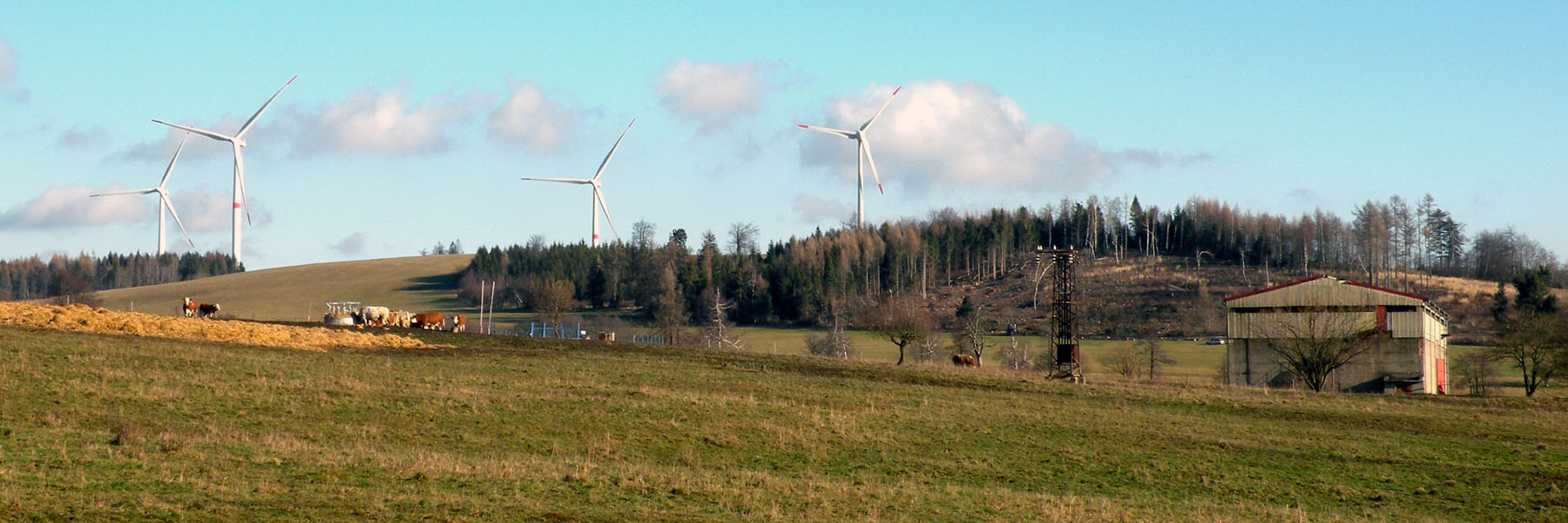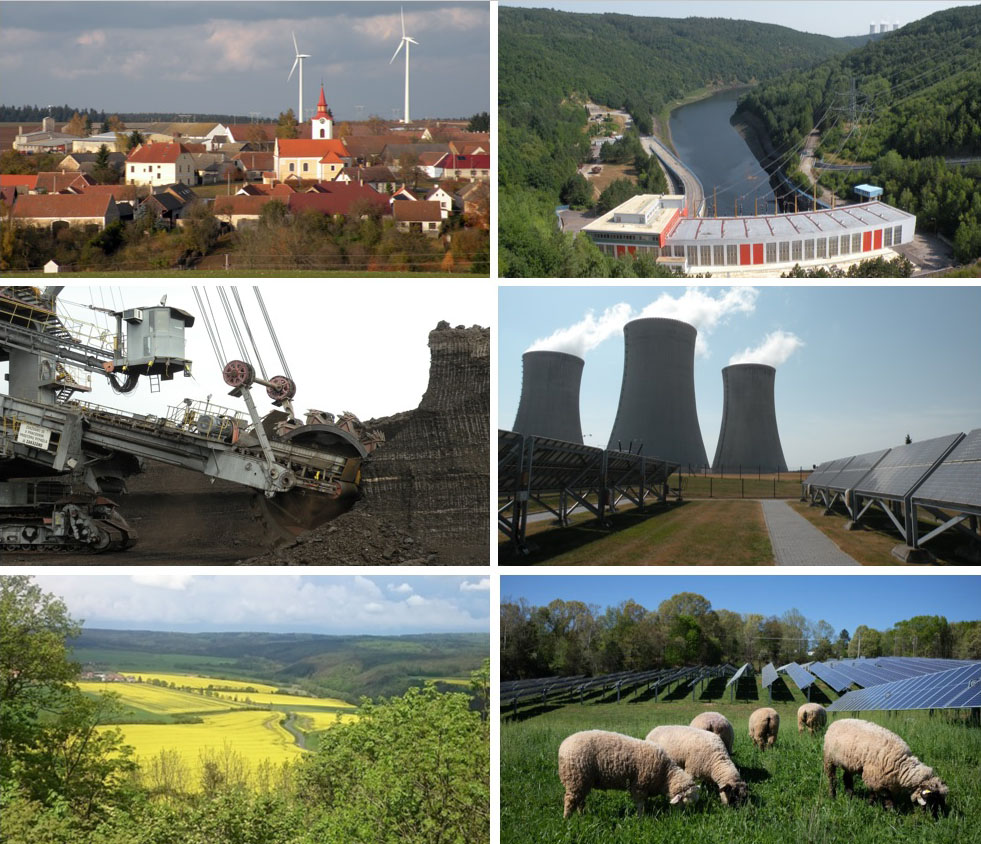Energy geography

Energy geography has been one of the fastest growing subdisciplines of geography in recent years. It deals with spatial relations, environmental aspects and socio-economic contexts of energy production, distribution and consumption as basic factors of all human activities (work, production, housing, transport, communication, education, tourism, etc.).
Energy geography integrates wide spectrum of research topics from the geopolitical impacts of diverging energy policies and international security issues, through to the issues of global climate change, natural resources management, renewable energy development and related land use conflicts, problems of agricultural restructuring and food insecurity, including issues of environmental injustice, energy poverty and energy literacy.
At the Department of Geography, our research focuses primarily on the spatial contexts of the ongoing low-carbon energy transition, the socioeconomic impacts of the transformation of coal and carbon intensive regions, and the spatial diffusion and social acceptance of renewable energy innovations.
Persons involved from the department of geography
- RNDr. Bohumil Frantál, Ph.D.
- prof. RNDr. Marián Halás, Ph.D.
- doc. Mgr. Pavel Klapka, Ph.D.
- Mgr. Lucia Brisudová, Ph.D.
- Mgr. Adam Stražovec
Former members
- doc. Mgr. Jindřich Frajer, Ph.D.
- Mgr. Stanislav Martinát, Ph.D.
Projects
Current projects
- Hidden geographies of low-carbon transition: Czech households' energy behaviour and
adaptive responses on energy poverty risks (GA ČR GA24-11885S, duration 2024–2026). The department is a co-investigator in the project, contact person: pavel.klapka@upol.cz - Akumulace environmentálních nespravedlností a vznik klimatické zranitelnosti ve středoevropských uhelných regionech: sociálně-prostorové výhledy (GAČR 23-07382S, duration 2023–2025). The department is the principal investigator in the project, contact person: bohumil.frantal@upol.cz
Closed projects
- Enabling Positive Tipping Points towards clean-energy transitions in Coal and Carbon Intensive Regions (TIPPING+) (Horizon 2020, grant ID 884565, doba řešení 5/2020–4/2023, web: https://tipping-plus.eu/home). The Department is a partner in the project – contact person: bohumil.frantal@upol.cz
- Exploring social-spatial diffusion of renewable energy projects in the Czech Republic: lessons for adaptive governance of energy transition (Czech Science Foundation No. 16-04483S), duration: 2016–2018). The Department was a partner in the project – contact person: bohumil.frantal@upol.cz
- Energy Landscapes: innovation, development and internationalization of research (ENGELA)“ (ESF OP CZ.1.07/2.3.00/20.0025, duration: 2011–2014) – The Department was a partner in the project – contact person: bohumil.frantal@upol.cz
Relevant publications
Klusáček, P., Alexandrescu, F., Frantál, B., Konečný, O. (2025): Desert or garden? Energy sacrifice zones, territorial affordances and competing visions for post-coal landscapes: The case of the Czechoslovak Army Mine. Energy Research & Social Science 119, 103876. https://doi.org/10.1016/j.erss.2024.103876
Frantál, B., Pasqualetti, M., Brisudová, L. (2024): Challenges, dilemmas and success criteria of recycling coal mining landscapes. Moravian Geographical Reports 32(4), 216–232. https://doi.org/10.2478/mgr-2024-0018
Tàbara, J. D., Mangalagiu, D., Frantál, B., Mey, F., Maier, R., Lilliestam, J., ... & Martínez-Reyes, A. (2024): Transformative Emergence: Research Challenges for Enabling Social-ecological Tipping Points Toward Regional Sustainability Transformations. In: Tábara, D. et al. (Eds.). Positive Tipping Points Towards Sustainability: Understanding the Conditions and Strategies for Fast Decarbonization in Regions (pp. 325–343). Cham, Springer Nature. https://doi.org/10.1007/978-3-031-50762-5
Frantál, B., Dvořák, P. (2022): Reducing energy poverty in deprived regions or supporting new developments in metropolitan suburbs? Regional differences in the use of subsidies for home energy efficiency renovations. Energy Policy 171, 113250. https://doi.org/10.1016/j.enpol.2022.113250
Frantál, B., Frajer, J., Martinát, S., Brisudová, L. (2022): The curse of coal or peripherality? Energy transitions and the socioeconomic transformation of Czech coal mining and post-mining regions. Moravian Geographical Reports 30(4), 237–256. https://doi.org/10.2478/mgr-2022-0016
Pasqualetti, M. J., Frantál, B. (2022): The evolving energy landscapes of coal: Windows on the past and influences on the future. Moravian Geographical Reports 30(4), 228–236. https://doi.org/10.2478/mgr-2022-0015
Kulla, M., Novotný, L., Pregi, L., Dvořák, P., Martinát, S., Klusáček, P., Navrátil, J., Krejčí, T., Frantál, B. (2022): The good, the bad, and the nobody: Exploring diversity of perceptions of anaerobic digestion plants in Central and Eastern Europe. Energy Research & Social Science 89, 102644. https://doi.org/10.1016/j.erss.2022.102644
Martinát, S., Chodkowska-Miszczuk, J., Kulla, M., Navrátil, J., Klusáček, P., Dvořák, P., Novotný, L., Krejčí, T., Pregi, L., Trojan, J., Frantál, B. (2022): Best Practice Forever? Dynamics behind the Perception of Farm-Fed Anaerobic Digestion Plants in Rural Peripheries. Energies 15 (7), 2533. https://doi.org/10.3390/en15072533
Martinát, S., Cowell, R., Navrátil, J. (2020): Rich or poor? Who actually lives in proximity to AD plants in Wales? Biomass and Bioenergy 143, 105799. https://doi.org/10.1016/j.biombioe.2020.105799
Martinát, S., Navrátil, J., Trojan, J., Frantál, B., Klusáček, P., Pasqualetti, M. J. (2017): Interpreting regional and local diversities of the social acceptance of agricultural AD plants in the rural space of the Moravian-Silesian Region (Czech Republic). Rendiconti Lincei - Scienze Fisiche E Naturali 28(3), 535–548. https://doi.org/10.1007/s12210-017-0628-9
Dvořák, P., Martinát, S., Van der Horst, D., Frantál, B., Turečková, K. (2017): Renewable energy investment and job creation; a cross-sectoral assessment for the Czech Republic with reference to EU benchmarks. Renewable and Sustainable Energy Reviews 69 (March), 360–368. https://doi.org/10.1016/j.rser.2016.11.158
Frantál, B. (2016): Living on coal: Mined-out identity, community displacement and forming of anti-coal resistance in the Most region, Czech Republic. Resources Policy 49(9), 385-393. https://doi.org/10.1016/j.resourpol.2016.07.011
Frantál, B., Prousek, A. (2016): It's not right, but we do it. Exploring why and how Czech farmers become renewable energy producers. Biomass and Bioenergy 87, 26–34. https://doi.org/10.1016/j.biombioe.2016.02.007
